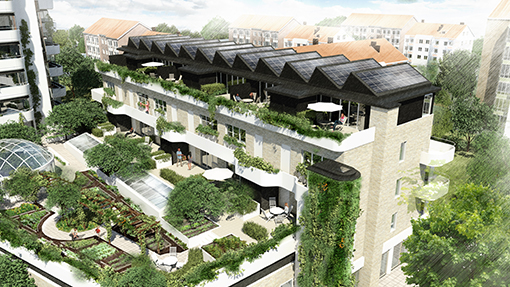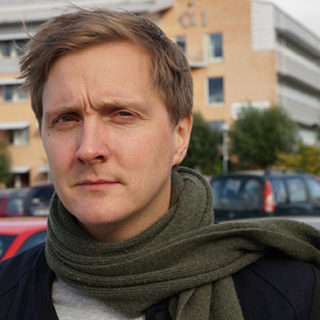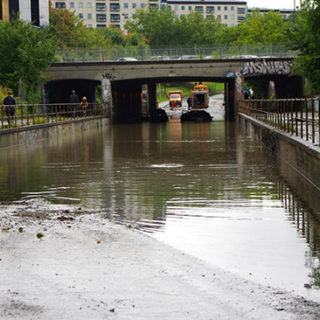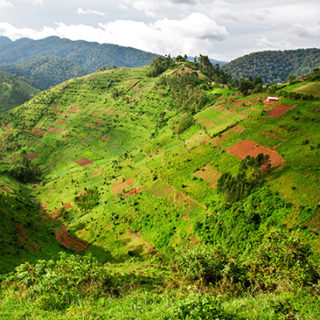Nature-based solutions in cities
A ground-breaking European project aims to help cities make the best, most robust decisions for increased liveability, climate change adaptation, and management of heat, storms, and precipitation.
LUND UNIVERSITY is a partner in Naturvation, which is a trans-disciplinary Horizon 2020 project involving many universities, city governments and other stakeholders. The project involves the CEC, IIIEE and LUCSUS from Lund University. So what is a nature-based solution? Nature-based solutions are actions to protect, sustainably manage and restore ecosystems by combining natural features and processes with economic growth, improved well-being, and social benefits. Nature-based solutions can solve a variety of urban problems and too often fall between the gaps of property managers, builders, city officials, designers, and other actors wo commonly believe that nature-based solutions are outside of their areas of expertise.

Augustenborg, Malmö’s “eco-city” shows how urban re-design can incorporate nature-based solutions, including green roofs and facades, urban agriculture, and stormwater management among others.
Naturvation has three main objectives: advance assessment approaches, enable innovations, and realise the potential of nature-based solutions. The project will map the current distribution of nature-based solutions in the six partner cities and also assess their impact on societal challenges such as climate change. It will also examine around 1000 solutions from 100 cities, such as permeable roads, drainage systems, and green roofs. After analysis it will provide recommendations regarding the most promising governance, business, finance and participation models and how to overcome the systemic conditions that currently limit their use.
Read about the researchers thoughts on the project Naturvation in Voices on Naturvation.
Text: Jack Fraser
Facts
-
The Naturvation Task Force
-
The Naturvation Task Force (including UN-Habitat, Arup, White Architects, Ramboll Living City Laboratory, Climate-KIC, the African Centre for Cities, the Environment Agency UK, The IPBES Indigenous and Local Knowledge Task Force, and the University of Munich) will operate as a critical friend and ‘real world’ testing ground for the developed knowledge, recommendations, processes and tools to enable the project participants to disseminate, replicate and embed this work internationally (NATURVATION: H2020 Smart & Sustainable Cities December 2016 – November 2020).
-
Horizon 2020
-
The European Commission’s seven year research programme, Horizon 2020, was created to fund smart, new ideas in Europe. Horizon 2020 is the biggest EU Research and Innovation programme and is open to academia, industries, small to large companies, and start-ups. With nearly 80 billion Euro in funding, various categories and topics can be the focus of applicant projects. Everything from renewable energy to pensioner health care issues can be a project concentration. Focusing on urgent issues, such as renewable energy, sustainable construction, urban transport, and smart technology are of specific interest within the sector of urban development (HORIZON 2020, The EU Framework Programme for Research and Innovation.)






